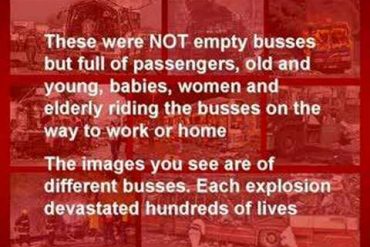1) The ITIC has produced an assessment of “Hamas’ new policy towards Israel“.
“On March 30, 2018, the period of three and half years (since Operation Protective Edge) of relative quiet along the Israel’s border with the Gaza Strip came to an end. That period was characterized mainly by a drastic reduction in the scope of rocket fire attacking Israel, unprecedented since Hamas took control of the Gaza Strip. […]
In ITIC assessment, Hamas’ policy of restraint was the result of a series of strategic considerations which had influenced the Hamas leadership over a long period of time. […]
In retrospect it appears that during the second half of 2017 and the beginning of 2018 the influence of those considerations on the Hamas leadership lessened: the deterrence Israel achieved in Operation Protective Edge continued to exist, but eroded over time (a process that occurred after other large operations in the Gaza Strip); Hamas’ motivation to gain time to construct a tunnel system penetrating into Israel weakened in the face of Israel’s operational and technological solutions; the difficult economic situation in the Gaza Strip, to which the PA sanctions contributed, created the need to find a direction for the Gazans to channel their rage and frustration. In addition, the attempts to effect an internal Palestinian reconciliation failed and the relations between Hamas and Egypt did not significantly improve. Apparently all of the above led Hamas to the conclusion that its post-Operation Protective Edge policy had exhausted itself and was increasingly less beneficial.”
2) At the INSS Yoel Guzansky and Oded Eran take a look at “The Red Sea: An Old-New Arena of Interest“.
“The Red Sea, and particularly its southern section surrounding the Bab el-Mandeb Strait, has in recent years become the site of competition and struggle among regional actors and superpowers alike. In addition to the states along the coast of the Red Sea and the Horn of Africa, the US, China, Turkey, and Iran – which is involved in the war in Yemen – have a presence there. Sub-state actors, such as the Islamic State organization, al-Shabaab in Somalia, the Houthi rebels, and al-Qaeda in Yemen, are also active in the region. In the meantime, there have been no disruptions to Israeli shipping and flight paths, which connect Israel to the Indian Ocean, the Far East, and Africa.”
3) At the JCPA Pinhas Inbari documents how “Erdogan’s Turkey Intensifies Involvement in Gaza and Jerusalem“.
“Turkey, under the charismatic leadership of President Recep Tayyip Erdogan, is intervening in many places throughout the Middle East. In each locale, it takes care to unfurl the Turkish flag literally.
However, Turkey’s public involvement in Jerusalem appears to be more public and striking because Jerusalem is more important to Turkey than other places in the region.
Turkey has shown great interest in both Gaza and Jerusalem. It is interested in Gaza because Gaza is ruled by the Muslim Brotherhood affiliate, Hamas, which Turkey wishes to bring under its wing, and it is interested in Jerusalem to facilitate the “saving of al-Aqsa.””
4) Matthew Brodsky explains why he supports the recent US decision to leave the UN Human Rights Council.
“Of course, it is easy to conclude that the problem with the clown car isn’t the car; it’s the clowns riding in it. Sure enough, the current clowns on the UNHRC don’t bode well for the protection of human rights. They include Qatar, Congo, Venezuela, China, Cuba, Iraq, Pakistan, Afghanistan, and Burundi. If that isn’t mind-bending enough, the UN’s forum for disarmament, which produced the treaty banning chemical weapons, is currently headed by none other than Syria. So it is possible to blame both the clowns and the cars that enable their behavior.”




